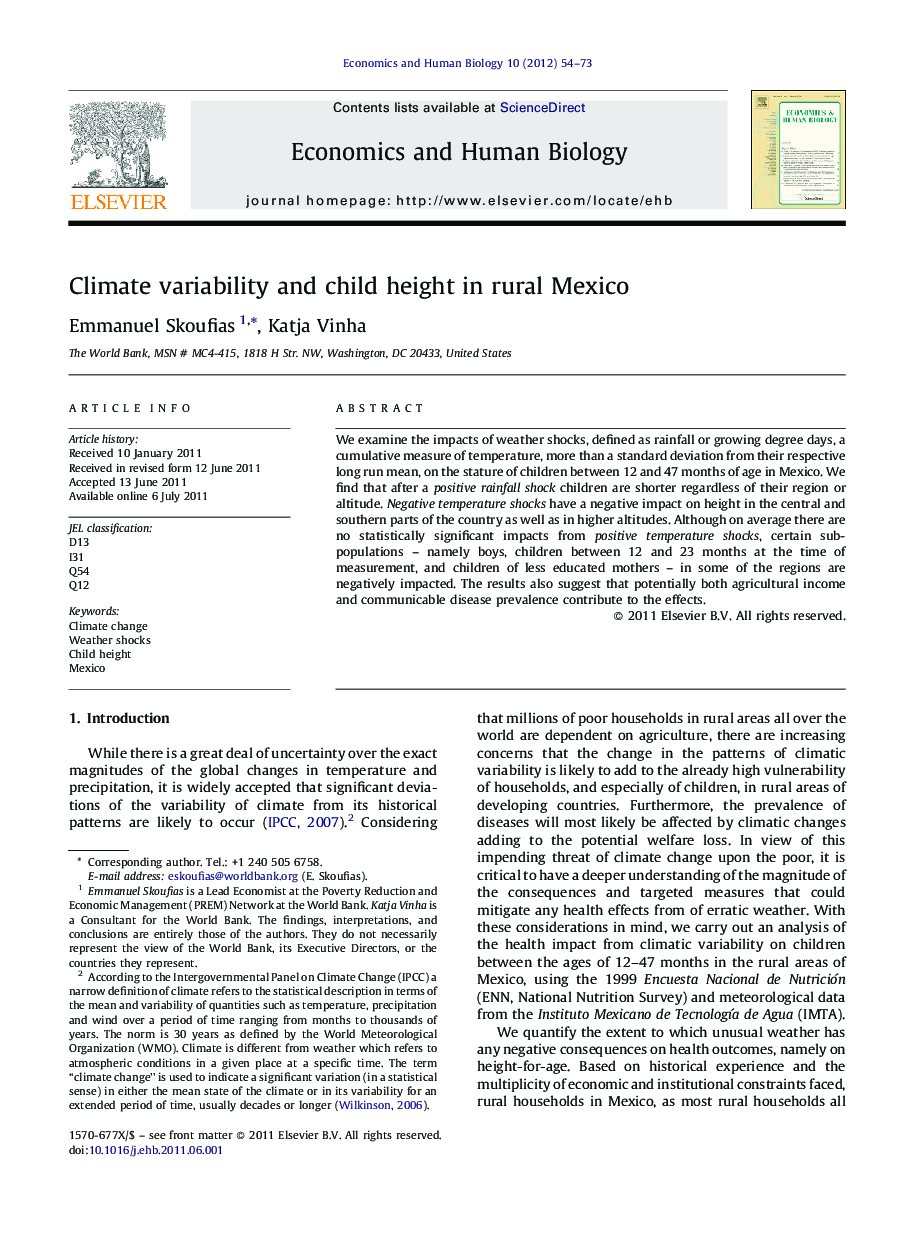| Article ID | Journal | Published Year | Pages | File Type |
|---|---|---|---|---|
| 5057185 | Economics & Human Biology | 2012 | 20 Pages |
We examine the impacts of weather shocks, defined as rainfall or growing degree days, a cumulative measure of temperature, more than a standard deviation from their respective long run mean, on the stature of children between 12 and 47 months of age in Mexico. We find that after a positive rainfall shock children are shorter regardless of their region or altitude. Negative temperature shocks have a negative impact on height in the central and southern parts of the country as well as in higher altitudes. Although on average there are no statistically significant impacts from positive temperature shocks, certain sub-populations - namely boys, children between 12 and 23 months at the time of measurement, and children of less educated mothers - in some of the regions are negatively impacted. The results also suggest that potentially both agricultural income and communicable disease prevalence contribute to the effects.
⺠We examine the impact of weather shocks on children's height in rural Mexico. ⺠Children are shorter after positive rainfall shocks, and in certain regions after negative temperature shocks. ⺠Certain sub-populations are also affected by positive temperature shocks. ⺠The effects may be from changes in environmental conditions (i.e. prevalence of communicable disease) or from changes in income.
